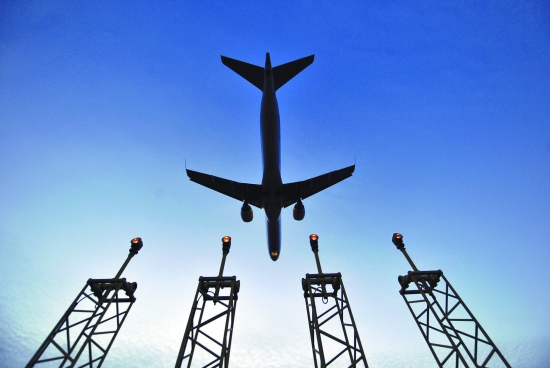EU sets carbon tax deadline on Chinese airlines
- By Lu Na
 0 Comment(s)
0 Comment(s) Print
Print E-mail China.org.cn, May 17, 2012
E-mail China.org.cn, May 17, 2012
|
|
|
EU urges 8 airlines of China and 2 airlines of India to submit their carbon dioxide emissions information by mid-June. |
The EU on Wednesday issued a warning against 10 airlines from China and India that refused to submit their carbon emissions data as disputes continue over the new carbon taxes on planes traveling in and out of Europe.
Connie Hedegaard, European Commissioner for Climate Action said that only China and India Airlines still defied the EU and refused to provide the carbon emissions data from 2011, compared to 1,200 airlines from around the world that have submitted the information. The two last holdouts' carbon emissions accounted for less than 3 percent in the aviation industry.
Hedegaard warned that if the eight Chinese airlines and two Indian airlines continue refusing to cooperate by mid-June, they may face penalties. The specific penalty measures will vary according to the European countries which the flights of these airlines take off and land. Experts said that what China and India have done is giving a headache to the EU, because they may encourage other airlines to refuse to comply with further demands.
In 2008, the EU passed the bill that would bring all flights flying to and from EU member countries into the Emissions Trading Scheme (ETS). The bill became effective on Jan. 1, 2012. According to the bill, EU will give a certain amount of tax-free carbon allowance to airlines based on their past carbon dioxide emissions volume. Emissions surpassing those caps would result in taxes to the airlines, while margins below the caps could be sold to other airlines for them to avoid the tax.
The International Air Transport Association (IATA) estimated that the tax would add 3.4 billion euro (US$4.3 billion) to the cost of the global aviation industry next year. China's civil aviation industry will pay 800 million yuan (US$126.5 million) more in 2012. Moreover, China will pay over 3 billion yuan (US$474.5 million) carbon tax by 2020 and pay 17.6 billion yuan (US$2.78 billion) for the cumulative expenditure in the 9 years.
Recently, Civil Aviation Administration of China (CAAC) ordered that all airlines are prohibited from participating in the ETS without approval from the Chinese government, and they are further barred from increasing ticket prices on grounds of joining the ETS. Meanwhile, 29 countries worldwide, including China, have issued a joint declaration that they would strongly resist the aviation carbon tax and proposed specific challenges against the tax measure.
"As long as it refers to the EU carbon tax, airlines in China will bond together," said a person with China Eastern in charge of dealing with this issue. "Besides, even if some countries submitted the data, it doesn't mean that they agreed to pay the tax, especially the U.S. and Russia. They oppose it as strongly as China." He said that EU won't take unilateral sanctions against China because China will retaliate.
However, an expert said that EU will take new moves to deal with the global opposition. Some EU officials said that EU decided to return 80 percent of the taxes it collects to the airlines. This could prove appealing to some airlines, which can transfer the increased costs to ticket-buyers and let the EU take the blame for price increasing. Meanwhile, the airlines could be get back a large portion of the taxes and pocket them as profits.






